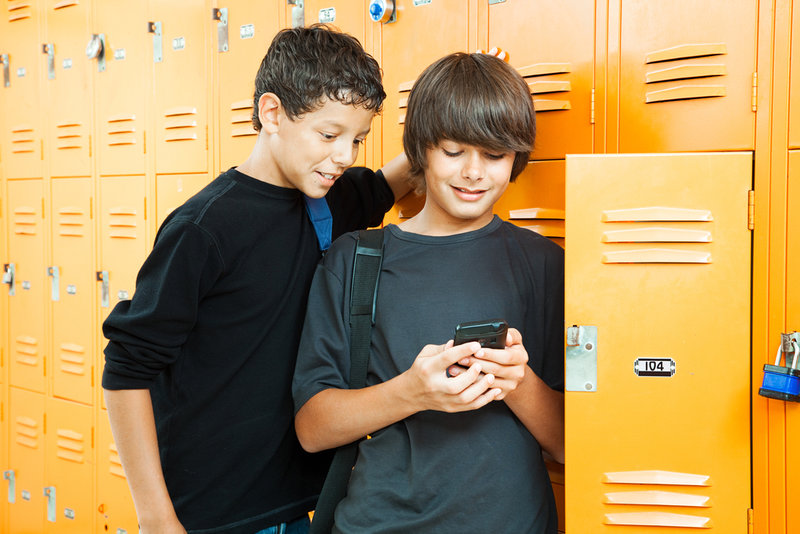Every parent knows the sinking feeling. Your child comes home buzzing about a new friend, and at first it seems harmless enough. Then you notice the changes: a sharpness in tone, bending the truth more often, testing boundaries they’d never pushed before. You start to wonder whether this new companion is such a good influence after all.
It’s not an easy situation to be in. Friendships are central to childhood, and stepping in can feel like stomping across a minefield. Handle it badly and you risk pushing your child closer to the very person you’re worried about. But ignore it altogether and you could watch them drift into habits that don’t sit well with your values.
So what’s the right approach? The truth is there isn’t one neat answer, but there are ways to manage things thoughtfully, without making your child feel judged or alienated.
Start by Checking Your Own Assumptions
Before leaping to conclusions, it’s worth pausing to ask yourself whether the “bad influence” label is entirely fair. Children are complex and so are their friendships. The child you see as trouble might simply have a different personality, background, or way of doing things that clashes with yours.
It’s also worth considering whether your concern comes from genuine red flags or something smaller, like not liking their manners or the way they play. Sometimes kids who seem cheeky or disruptive are also loyal, funny, or kind in ways we don’t always witness firsthand.
That doesn’t mean ignoring your gut altogether – parents’ instincts can be valuable – but it does mean taking a breath before branding another child as the problem. Misjudging a friend could sour your relationship with your own child, and make them feel you’re being unfair.
Keep the Focus on Behaviour, not Personalities

If you do have real concerns, try to separate the friend from the actions that worry you. Saying “I don’t like that child” puts your son or daughter in a defensive position. It forces them to choose between loyalty to their friend and respect for you, and that’s rarely going to end well.
Instead, focus on what’s actually happening. “I’m not comfortable with you lying about where you were” is very different from “That mate of yours is a liar.” It shows you’re paying attention to your child’s choices, not launching an attack on someone they care about.
This shift also teaches an important lesson: that people aren’t wholly good or bad, but our actions have consequences.
Talk – and Really Listen
Open communication is your best tool. Make it routine to talk about friends, what they get up to, and how those situations make your child feel. The key is to listen without jumping in too quickly.
Children often reveal more when they feel you’re genuinely interested rather than waiting to pounce with a lecture. If they mention a situation that raises your eyebrows – say, sneaking off somewhere they weren’t supposed to – resist the urge to scold straight away. Instead, ask: “How did that make you feel?” or “What do you think about that now?”
By encouraging reflection rather than dishing out punishment, you give them space to develop their own judgement. That’s far more valuable in the long run than having rules enforced from above.
Encourage Balance and Variety
Sometimes the issue isn’t the friend themselves but the intensity of the friendship. When a child spends all their time with one person, their behaviour – good or bad – can start to dominate.
Encouraging a wider circle of friends can dilute the influence of one particular peer. This doesn’t mean orchestrating every social interaction, but it does mean creating opportunities: inviting classmates over, signing up for clubs, or encouraging group activities. The more diverse your child’s friendships, the less dependent they are on one dynamic.
It also shows them that friendships can look different – some may be fun and silly, others calm and steady – and that’s a healthy thing to experience.
Set Clear Boundaries

Being understanding doesn’t mean being hands-off. Children need boundaries, and it’s okay to enforce them. If you don’t want your child at a particular place, or staying out past a certain time, say so.
What matters is how you explain it. Frame rules in terms of values rather than fear of a specific friend. For example: “We don’t lie about where we are, because trust is important in our family” carries more weight than “I don’t trust you when you’re with that person.”
Boundaries are less likely to be resented when they feel like part of family principles rather than a targeted attack on a friend.
Avoid Demonising the Other Child
It can be tempting to make the other child the villain of the story. But children labelled “bad influences” are often dealing with challenges of their own – whether that’s difficulties at home, struggles at school, or simply a lack of guidance.
Showing empathy doesn’t mean ignoring harmful behaviour, but it does mean keeping perspective. If you speak with kindness rather than disdain, your child will learn to do the same. It models compassion, even when boundaries are tested.
You might even find that a little patience pays off. Friendships that start rocky can sometimes mellow with time, especially if both children are still working out who they are.
Know When to Step in More Firmly
Of course, there are limits. If your child is being drawn into genuinely risky or harmful behaviour – whether that’s persistent dishonesty, aggression, or unsafe activities – then a stronger response is needed.
That could mean restricting contact in certain situations, speaking to teachers for support, or being more present during meetups. It’s not always easy, but your first responsibility is your child’s wellbeing.
Even then, try to frame your actions carefully. Make it clear you’re responding to specific behaviours rather than rejecting the friend outright. That way, your child understands the “why” behind your decision, even if they don’t like it.
Accept That This is Part of Growing up

Perhaps the hardest part is accepting that you can’t choose your child’s friends – and nor should you. Friendships, even the tricky ones, are part of how kids learn who they are and how the world works.
Sometimes they’ll get hurt, sometimes they’ll make mistakes, and sometimes they’ll come home parroting phrases you’d rather not hear. But those experiences also help them develop resilience, judgement, and independence.
Your role isn’t to shield them from every influence but to help them navigate those influences with clarity and confidence. By keeping communication open, setting fair boundaries, and showing compassion, you give them the tools to make better choices for themselves.
Keeping Perspective as a Parent
If you’re worried about your child’s friendships, you’re not alone. Almost every parent faces this dilemma at some point. The good news is that it rarely defines the rest of their lives. Children move through friendships quickly, and phases that feel overwhelming today often fade tomorrow.
So take a breath. Stay calm, stay connected, and remember that your relationship with your child is what matters most. With your steady guidance, they’ll learn to figure out the difference between genuine friends and those who don’t have their best interests at heart.
And when they do, you’ll know you handled a delicate situation with the patience and care it deserved.

